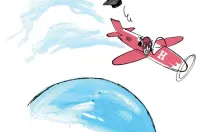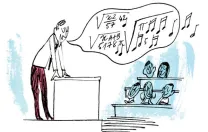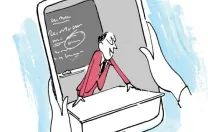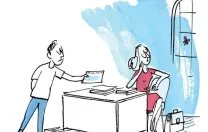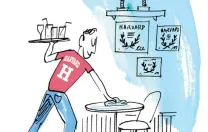As the College celebrates its 375th anniversary, we asked members of this year’s twenty-fifth reunion class how their education shaped who they have become—and what Harvard could do to improve the education of undergraduates today and in the future.
“Have Big Lives.”Reflecting on failure and success in post-Harvard lives |
|
“Get Jobs! Learn How to Do Something.”More emphasis on practical training at Harvard |
|
The “Classic Tough and Demanding Harvard Professor”The importance of academic rigor and mentoring at Harvard |
|
From Passive to “Immersive Learning”Techonology-assisted learning key to future pedagogy |
|
“Pride Is Such a Useless Handicap.”Pushing beyond intellectual insecurity at Harvard |
|
“Become Better ‘Citizens of the World.’”Harvard students need global education. |
